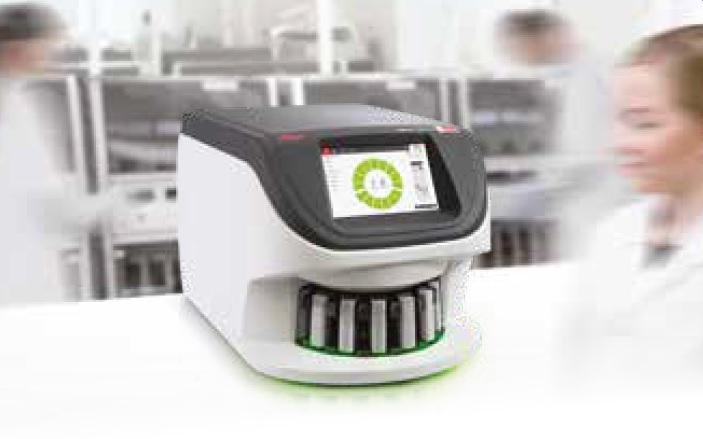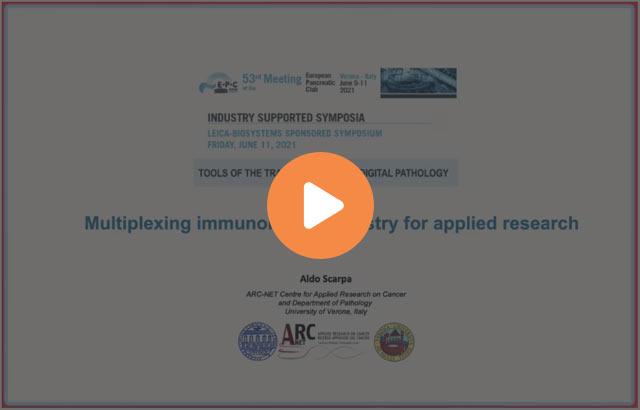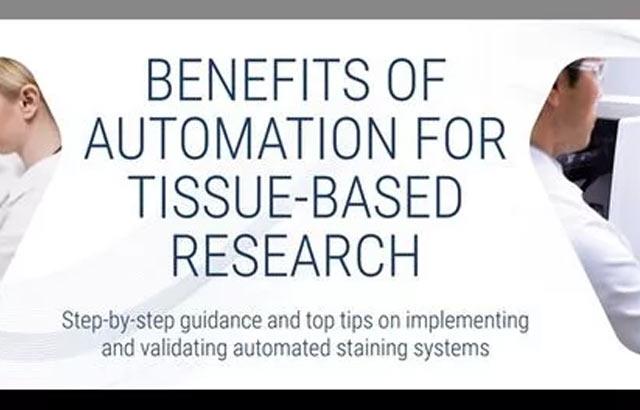
Digital Pathology: Take Your Next Step On the Path to Implementation

Digital pathology can help overcome time, productivity, and quality constraints often associated with manual microscopy, by enabling you to work in the digital environment. Additional benefits of implementing digital pathology into your research projects are highlighted below.
Why Go Digital?
Digital pathology is the practice of converting microscopic glass slides into digital slides that can be viewed, managed, and analyzed on a computer screen or mobile device. Digital pathology is being readily adopted by research organizations to enhance biomarker and drug discovery. Here are the top reasons to implement digital pathology.

Improve Quality & Productivity

Reduced errors:
Helps prevent breaking of precious slides due to excess handling, and need to ship to distant laboratories. Misidentification may also be reduced by barcoding of slides.

More innovation:
Big data provides more research outputs for complex research questions. Allows research groups to collaborate at broader locations. Provides tools for teaching and training at different locations.

Improved analysis:
Improve accuracy in tissue analysis by removing the subjectivity and inter-/ intra-observer variability inherent in manual review, as well as providing a comprehensive, quantitative analysis.

Improved workflow:
Central storage and data management systems for digitized slides enables international collaboration, a more streamlined workflow, and for more flexible work schedules.

A new way to view:
Team annotation of slides. Measure multiple areas of interest with multiple people annotating. Get a dashboard view of all annotations for analysis. Simultaneous view of slides from the same study.

Reduced turnaround time:
Enables immediate access to archive digital slides compared to searching in physical repositories. Also reduces time in retrieving, matching and organizing data within a study.
For research use only. Not for use in diagnostic procedures
발표자 소개

Rhian is a Scientist from Swansea University in Medical and Healthcare Studies and was featured in several collaborative publications. Rhian’s research-based background focused on tissue-based pathology in Multiple Sclerosis, primarily using immunohistochemical analysis and in vitro molecular techniques. She spent a short period conducting routine PCR testing for COVID-19 at the end of 2020.
Related Content
Leica Biosystems 콘텐츠는 Leica Biosystems 웹사이트 이용 약관의 적용을 받으며, 이용 약관은 다음에서 확인할 수 있습니다. 법적고지. 라이카 바이오시스템즈 웨비나, 교육 프레젠테이션 및 관련 자료는 특별 주제 관련 일반 정보를 제공하지만 의료, 규정 또는 법률 상담으로 제공되지 않으며 해석되어서는 안 됩니다. 관점과 의견은 발표자/저자의 개인 관점과 의견이며 라이카 바이오시스템즈, 그 직원 또는 대행사의 관점이나 의견을 나타내거나 반영하지 않습니다. 제3자 자원 또는 콘텐츠에 대한 액세스를 제공하는 콘텐츠에 포함된 모든 링크는 오직 편의를 위해 제공됩니다.
모든 제품 사용에 다양한 제품 및 장치의 제품 정보 가이드, 부속 문서 및 작동 설명서를 참조해야 합니다.
Copyright © 2024 Leica Biosystems division of Leica Microsystems, Inc. and its Leica Biosystems affiliates. All rights reserved. LEICA and the Leica Logo are registered trademarks of Leica Microsystems IR GmbH.


